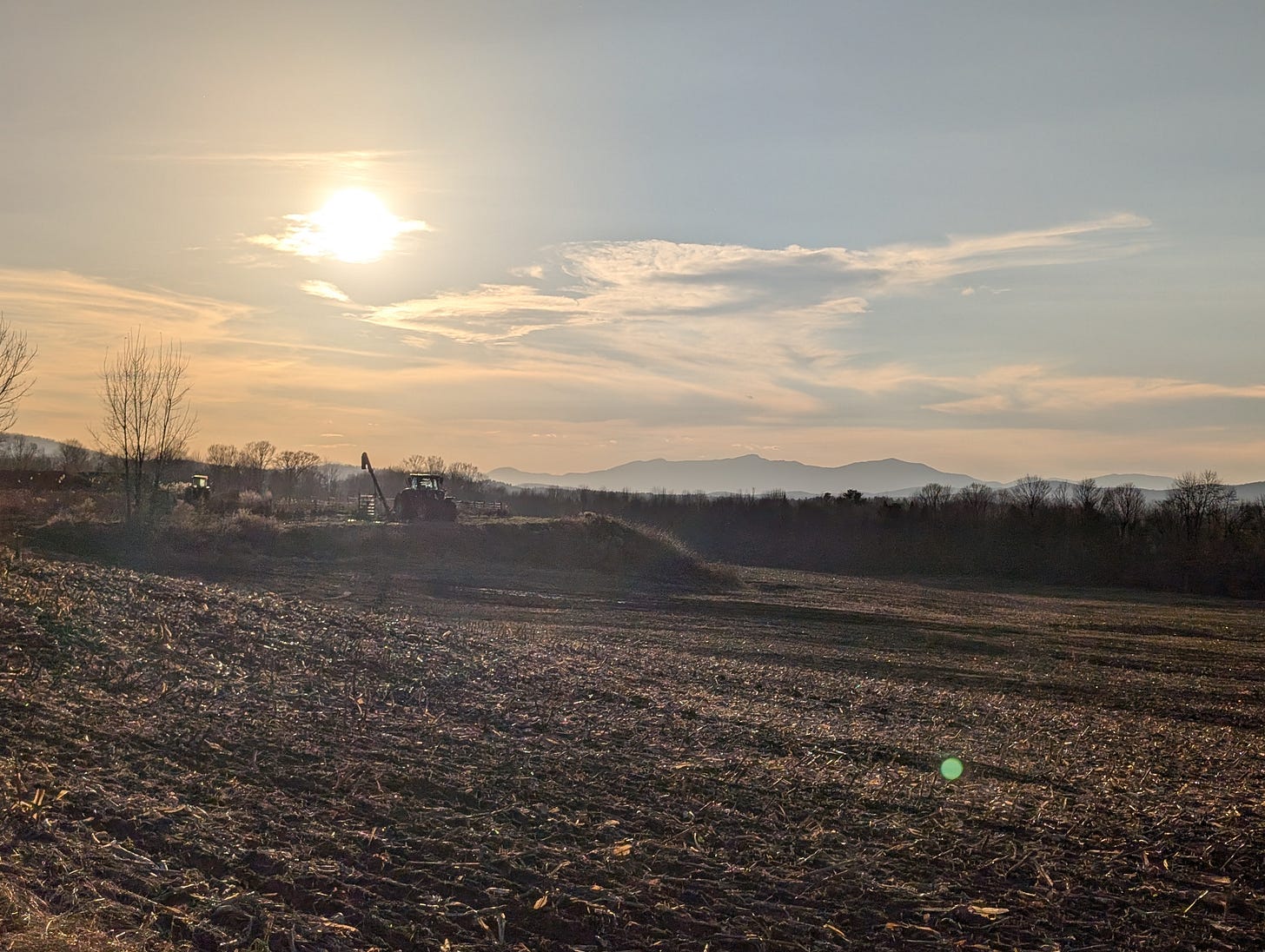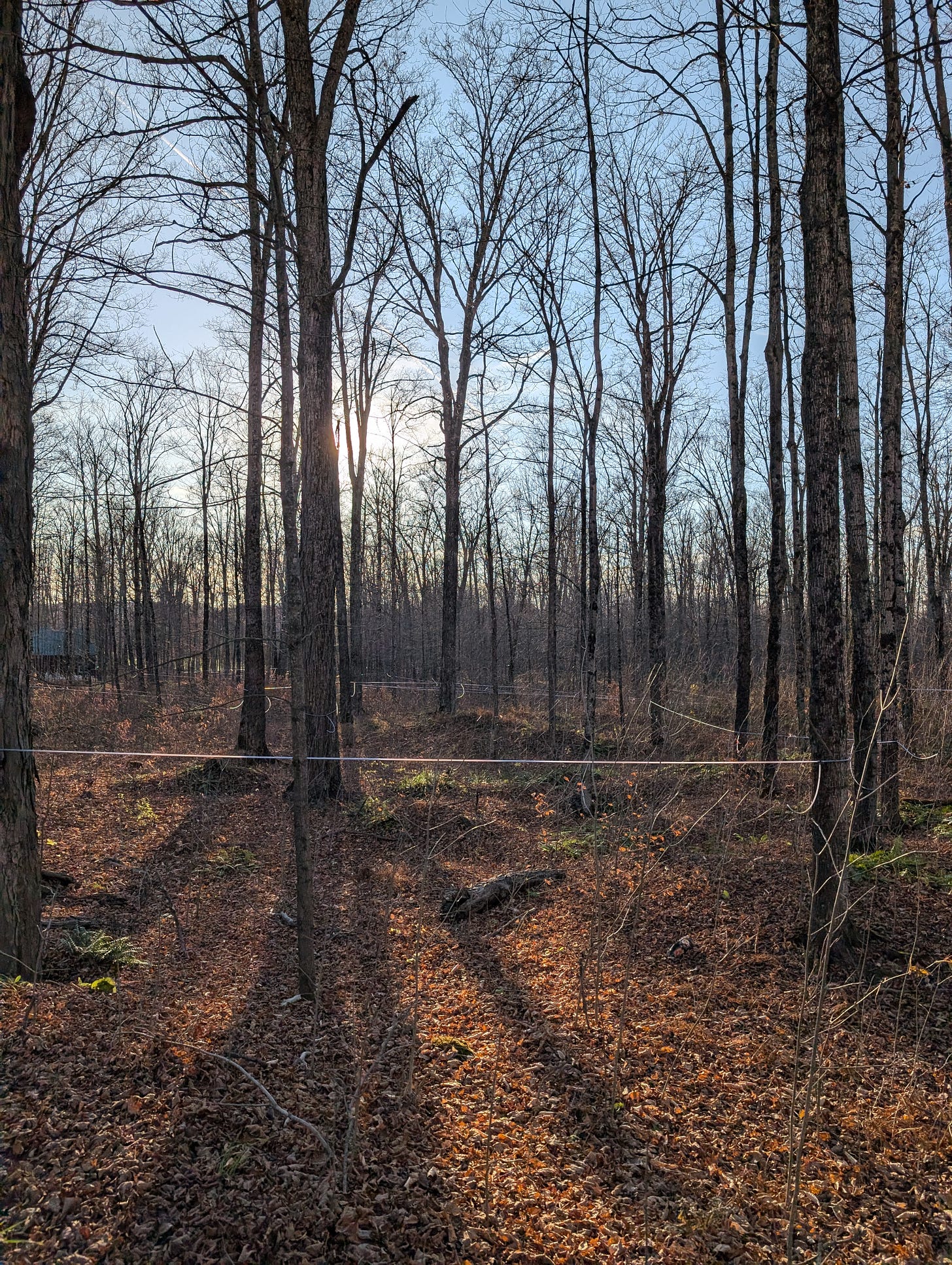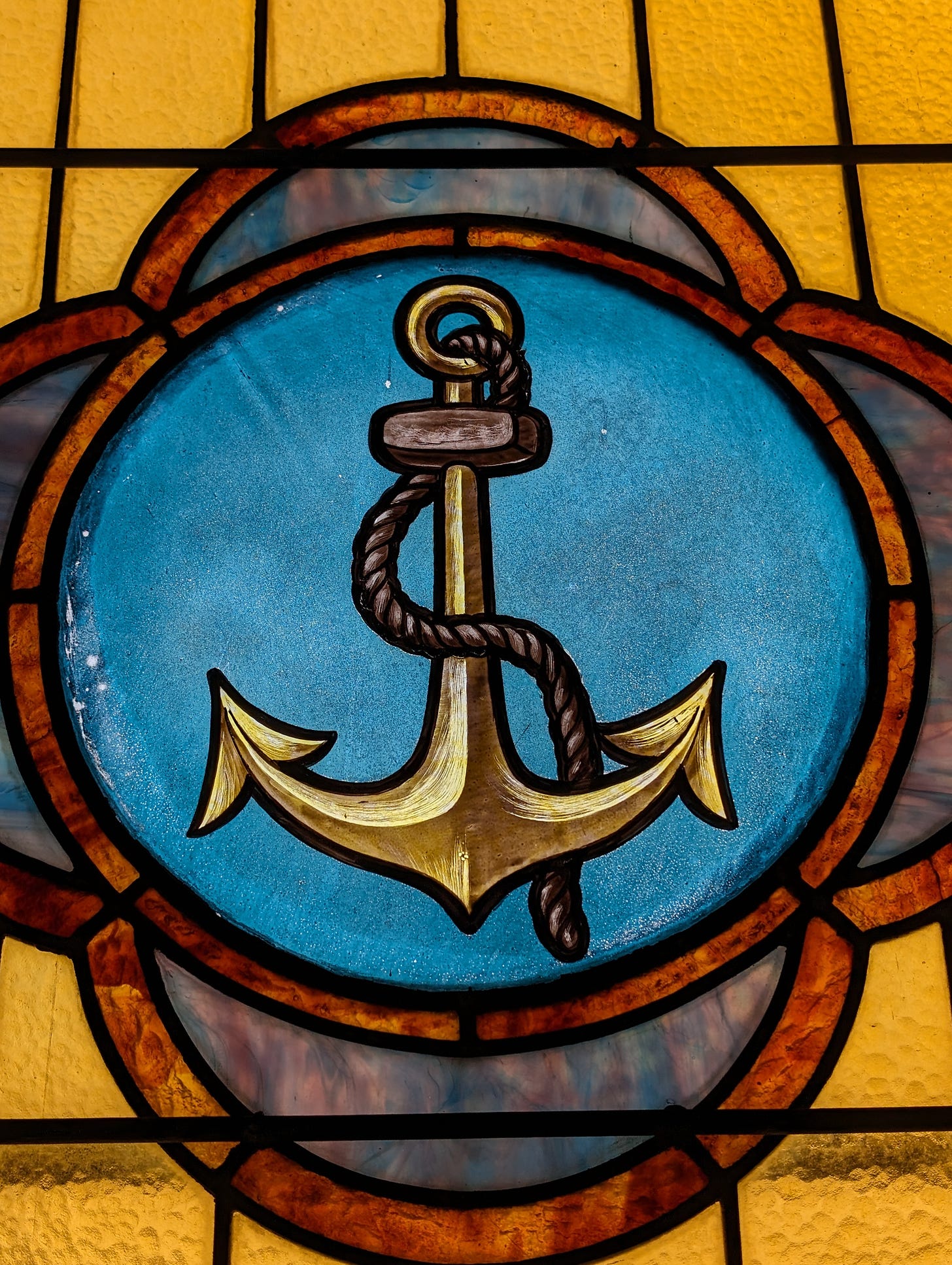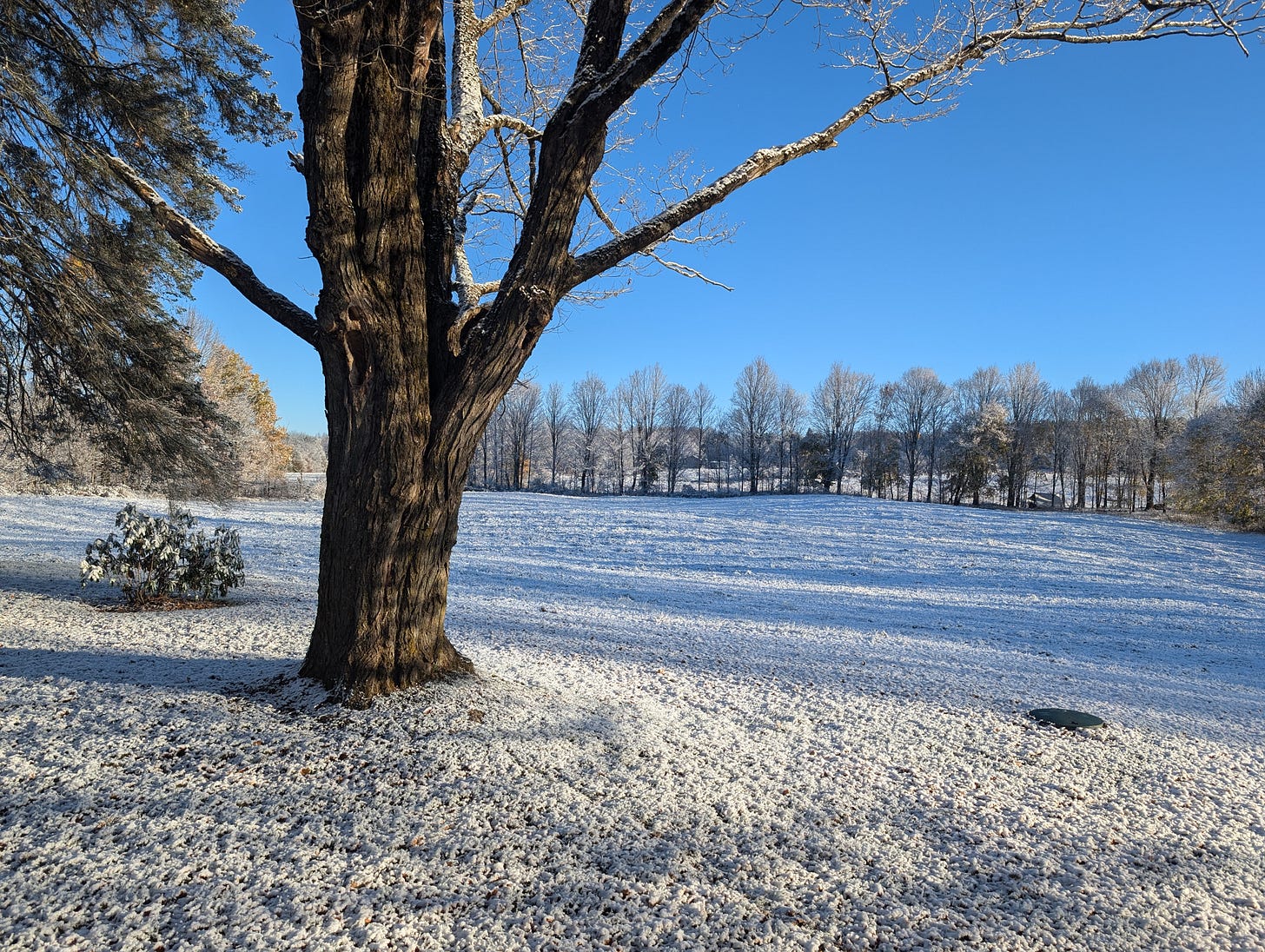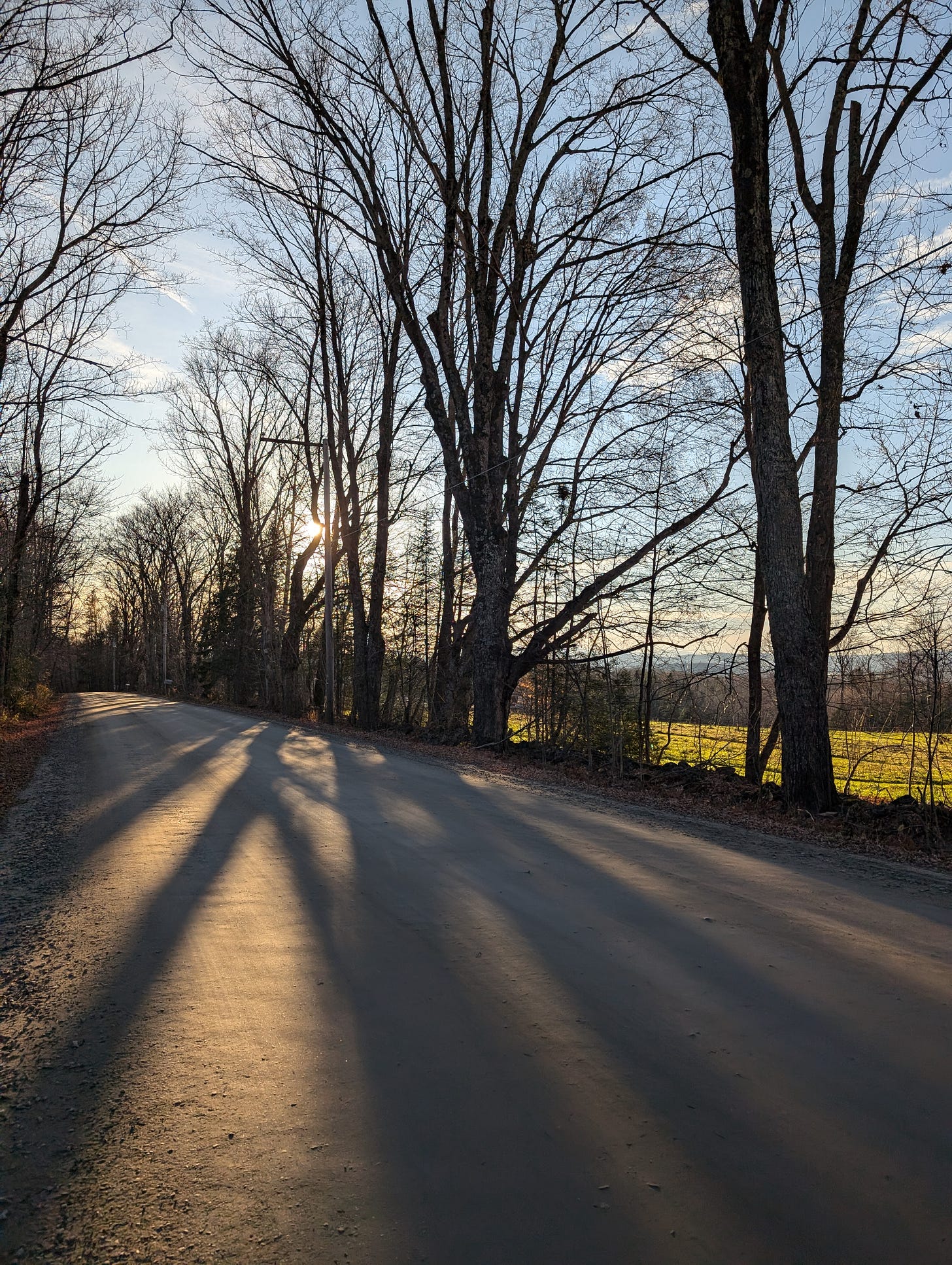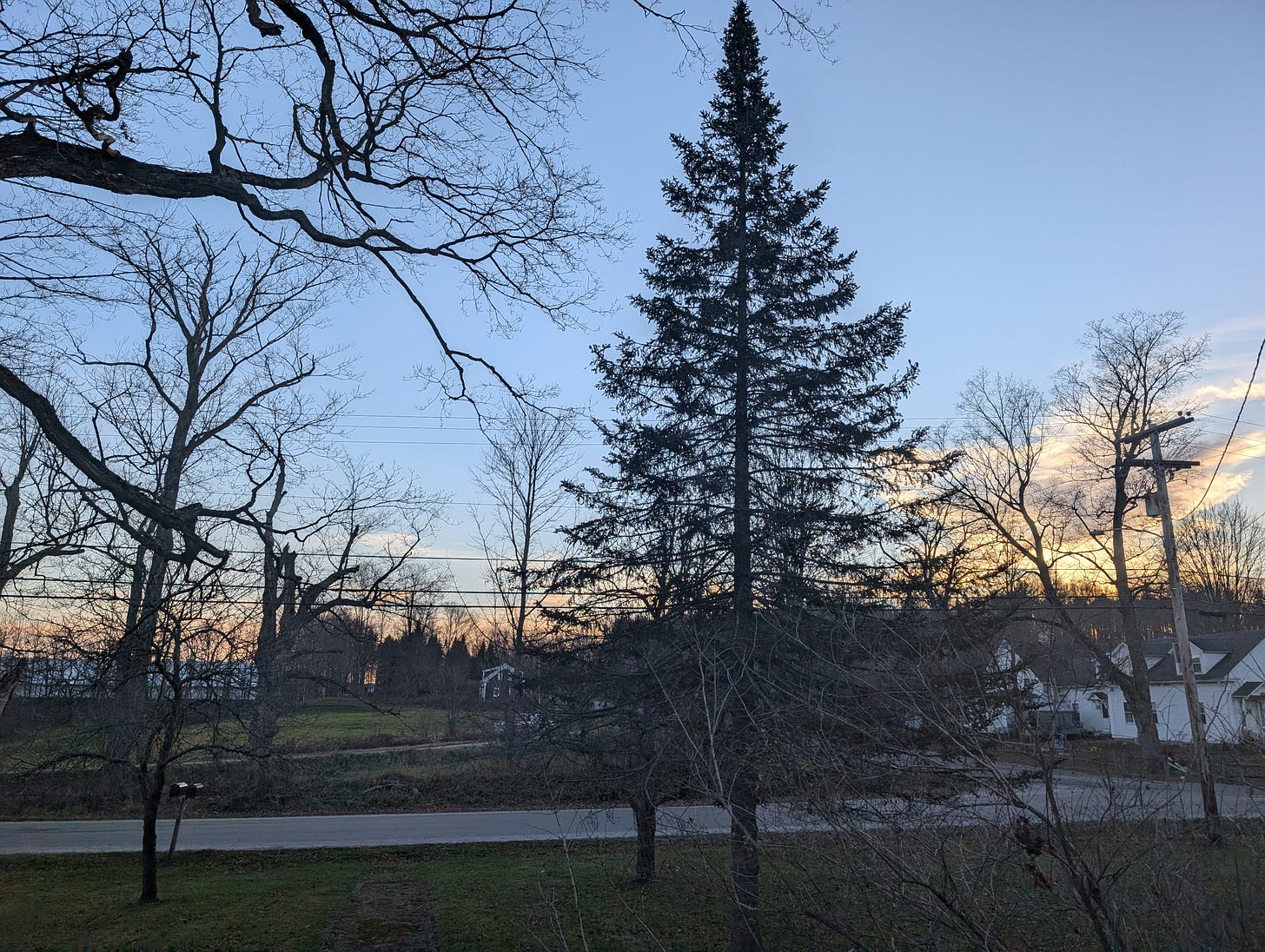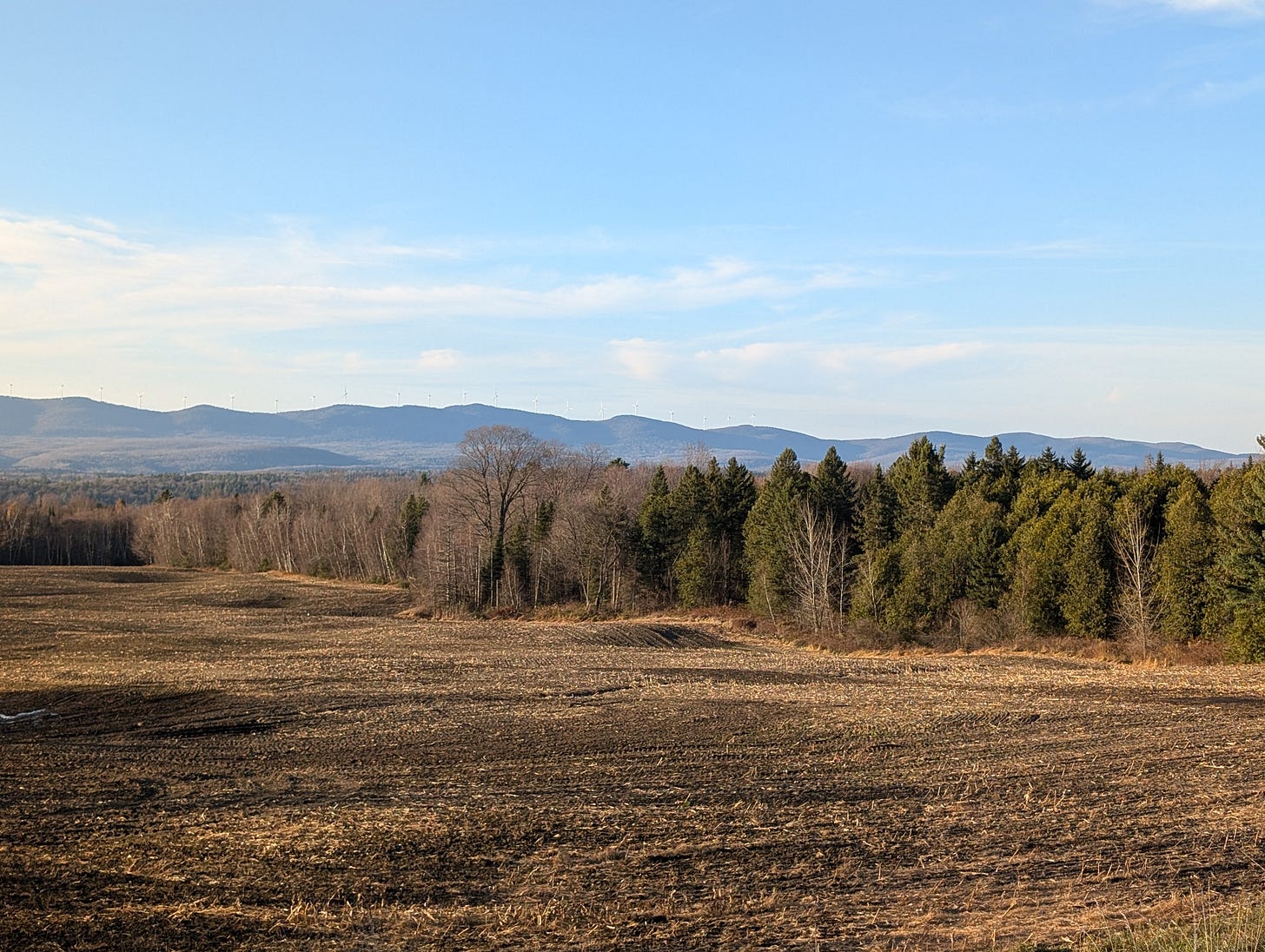The Anchor
In times of turmoil, keep it simple like the saints
One of the scribes came near and heard them disputing with one another, and seeing that he answered them well he asked him, “Which commandment is the first of all?”
Jesus answered, "The first is, ‘Hear, O Israel: the Lord our God, the Lord is one; you shall love the Lord your God with all your heart and with all your soul and with all your mind and with all your strength.’
“The second is this, ‘You shall love your neighbor as yourself.’ There is no other commandment greater than these.”
Mark 12:28-31
In my bedroom growing up, I had one of those posters with pictures of all the US presidents. I’ve been thinking about the feeling I had as a kid gazing upon those faces and names, learning more about history and politics each year. As I looked through, I’d have these different gut reactions. Some of those names and faces would instantly evoke the legendary and mythical—Lincoln, Jefferson, Roosevelt—and some made me scratch my head….who was Martin Van Buren beyond the haircut? As I learned more about history, more of them would evoke feelings of love, some of disdain, some defined by their great accomplishments, some remembered even by their evil.
There are just 46 presidents. Imagine how big it would be if you had a poster with all the different people throughout the annals of church history. Imagine how impossibly large it would stretch up to the sky. I imagine if we were to look at a poster of just the official Catholic saints, we would probably have similar feelings as the poster of presidents: “Saint Paul, wow, legend….Saint Peter, love him…wait, Saint Elmo was a real guy? Did he really have a fire?” If it were a poster of the saints just for our small church, I still think we might have some similar feelings: many people who we adored, probably a couple that we sometimes had a hard time with, and all in between. They make up a tapestry of our shared faith.
Today in our church, as we celebrate All Saints Sunday, we might wonder what, if anything, they all had in common. For all these different people, sinners and saints alike, what was the thing that anchored them together to the faith? Jesus gives us that answer in Mark 12.
The Shema, the Anchor
When asked for the first, or foundational commandment, Jesus recites what is known as the Shema prayer from Deuteronomy. Shema is the first Hebrew word of it, “hear,” or “listen”: “Hear, O Israel: the Lord our God, the Lord is one; you shall love the Lord your God with all your heart and with all your soul and with all your strength” (Deut 6:4-5). And as we know, Jesus follows up with a “second one that is like it” from Leviticus: “You shall love your neighbor as yourself” (Lev 19:18). This is the core of the core of what it means to follow Jesus; it is the anchor of anchors.
My church has several pieces of stained glass, and on one of them is a simple icon of an anchor (above). While the word “anchor” is only in the Bible a few times—in Paul’s travels (Acts 27) and in Hebrews, whose author calls our hope “an anchor of the soul, sure and firm” (Heb 6:19)—the anchor has been an important symbol since early Christianity. The anchor pairs well with the story of the disciples on the boat in the storm, which has long been a symbol of the Church in the rocky seas of spiritual storms throughout history.
In the midst of such turmoiled times as we are in, I invite you to consider the Shema as your anchor—love God, and love neighbor.
Like many of us, I sense the pressure of the moment as a fork of history. Every politician every cycle calls it “the most important election in history” (and I’d even agree this is always technically true, because the current election is the only one we can actually vote in). No matter what, big changes are coming.
But some things don’t change. So again I say, shema, listen, church: the Lord is one. Love God with your whole self and love your neighbor as yourself. This is our anchor. No matter what happens this week, let that be your anchor.
The Devil’s Home
We know the details are where the devil hangs out, and the details of loving God and loving neighbor are where we get in trouble. Let me not pretend to have some wisdom I don’t have...the “how” of love is confusing and hard for every single one of us, especially when emotions are hot, the stakes are real, and when issues sometimes make us pick not only the lesser of two evils, but which good we value more. I believe almost every contentious, hard issue is a catch-22 between competing values that we’re asking someone to trade. In fact, I have a different poster with some of these values that are tough to balance—freedom and security, justice and mercy, progress and conservation.
So while some issues feel white-hot simple and infuriating that others can’t see, it’s still all hard when each of us is trying to love God and love our neighbor, trying to sift through a lot of different virtues that live in tension with one another. And it only gets harder when you add in forces like cults of personality, cults of political tribe, and the old reliable cults long before this country existed, the seven deadly cults, if you will—the Cult of Money, the Cult of Hedonism, the Cult of Violence, the Cult of Resentment, the Cult of Excess, the Cult of Apathy, and the Cult of the Ego.
I’m very grateful to be in a politically purple church. Still, I know some of us read, have thought, and maybe said something like the following at least every four years: “You aren’t a real Christian unless you vote ____.” “I don’t know how you can be a Christian if you vote ____.” Some say you can’t be a Christian unless you vote to defeat a greater evil. Some say you can’t be a Christian unless you don’t vote for any evil because your conscience is going to be compromised because participating in this system plays in Babylon by Babylon’s logic instead of the kingdom of heaven’s logic of love this world knows not.
I sympathize with all these responses. There are vast amounts of sophisticated political theologies out there beyond my scope that can thoughtfully argue for any number of positions. But if we vote against evil this election, we might also remember that most of us only have the right spiritual attunement to evil for things that hit close to home, attuned to how evil works through the sins that we and others we love have been hurt by, and of course our Christian vote will reflect that. And all of us are spiritually blind, willfully deaf, and complicitly mute in other evils. No matter our Christian vote, we must always remember the princes aren’t our anchors. The politicians aren’t our anchors. Our help does not come in the name on a ballot, our help comes in the name of the Lord who made heaven and earth.
Do you profess Jesus Christ to be your Lord and savior? The rest is the devil’s to do with what he will, but do you follow the one who said shema? Listen, he says, love the Lord your God with everything you have, and love your neighbor as if your neighbor was your very being. On this, not your vote, hinges all of it. This love is your anchor.
So how do we hold to the anchor?
Loving God
First, I’m grateful that Jesus is realistic here. Don’t get me wrong, it is a tall task for most of us to do the first of the first, to love God with all your heart, and all your soul and all your mind, and all your strength. But it’s still more realistic than if Jesus were telling us to love my neighbor with all my heart…soul..mind..strength…or to love myself in that way. Is there another reason for this order being this way?
Pastor HB Charles Jr. stressed that when Jesus tells us to love God, it is not the specific body parts that are emphasized, it’s the ALL—all your heart, all your soul, all your mind, all your strength. Love God with all of your all (and that is what worship is supposed to help us practice).
What else is there about loving the Lord your God with your all? That word “your” — your God is a person who loves us as persons.1 Ours is the God of individual people: the God of Abraham, Issac, and Jacob, loving his people from the very beginning and expanding his covenantal love out further. Of course, we get into trouble with this when we mistake God as only our personal little god, only for us and people who are like us. But also, for some who think the biggest f-word to be “fundamentalist,” the temptation is to make God a mushy vague metaphorical principle, like God’s just an idea, God’s just around out there somewhere, God is beyond caring about us because God is bigger than such trivialities (conveniently, this God also doesn’t care about your sins or evils you do either). But if we follow Jesus, to this we must say no—God is a personal God, who loves you.
In fact, God loves you with all of God’s heart, God loves you with all of God’s soul, God loves you with all of God’s mind, God loves you with all of God’s strength. All of God’s all loves you. And if you love God back with all of your all, it will change you.
For Jesus says all the other commandments flow downstream of this. These waters flow with the refrain I’ve heard recently from priest Aaron Burt: in practicing our wholehearted love for God, we might try praying to him to “love what you love and reject what you reject” (note the Old Testament’s word for “hate,” sane or שָׂנֵא, means to reject).
And if we’re gonna love what God loves, we’re gonna love our neighbor. We cannot love God with all of our all without loving our neighbor. And if we’re rejecting our neighbor, then we are rejecting those who God loves and does not reject. We might reject some of their actions, words, deeds, and ideas, but them? We must love them. To this we are anchored.
Loving Neighbor
The beauty of “love your neighbor as yourself” is that it’s so simple, we all can grasp something of it almost immediately. Even kids can get it on their level. But also, we mess it up all the time in the details.
So let’s first stretch it out a bit: love your neighbor as you would love yourself in your own true best self-interest. Don’t love them with a version of love that you know if you were on the receiving end of it, it would not be love, like paternalistic hatred candy-dipped in saccharine words. Loving your neighbor as yourself also doesn’t mean be fake nice to them, and it doesn’t mean let them harm, let them hurt, let them use others or be used, for in all these and more you’re not loving your other neighbors. Loving your neighbor as yourself doesn’t always mean being libertine; sometimes, such as in intervening in evil, our love must look decidedly firm, forceful, and with language that appropriately calls evil by its name.
Yet Jesus calls us to love our neighbor as an echo of how we are called to love God—love them with the same emotions, intelligence, spiritual intuition, and strength that we know to be the love of Jesus.
We know what is in the love that we hope to receive from God—for mercy in our repentance, for strength in the storms, the love of teaching us when we are ignorant, the love of reminding us of the things we simply forget. Let us have that love for others. True, God’s love sometimes is temporarily angry because God loves us, and so may our anger be. But let us love our neighbor with the reality of seeing each other as sinners in need of grace and setting our expectations accordingly, sharing our need for grace collectively and not just on their shoulders or just ours. Let us love and be loved to God’s better Way. Let us love our neighbor like they’re a prodigal son or daughter, because they are, because you are too. And remember (maybe especially this week) that even your enemy is your neighbor, and we are called to love them too.
And when you mess up, and you will, remember your anchor—love your God, love your neighbor.
The Long Chain
All the saints on that infinitely large poster, all the people who loved God with all of their all, all had the same anchor. And they are our long chain attached to that anchor. The people we personally know who loved us are just the latest links attached to us, and they had links attached to them, and on the chain goes all the way back to the apostles and the Anchor of Anchors, Jesus Christ. All our saints are that long chain back all the way to Jesus. All of them, passing the love of Christ with the help of the Holy Spirit, one person at a time, loving God, loving neighbor. Without everyone in that long chain back, you would not have this gift from God we call faith.
Now the question is, how will you be the next link in the chain? How are you going to stay connected to the Anchor and help someone link in?
Think of how your favorite saints who loved you into being held onto that anchor commandment. I invite you to take time now and pause. What would it look like for you to imitate them? What changes would you need to make?
Shema, listen, one more time, and remember: love God with all of your all, and love your neighbor as yourself. No matter what happens in the world, this week or all your weeks, remember your Anchor.
Edward F. Markquart, https://www.sermonsfromseattle.com/series_a_the_hingeGA.htm


